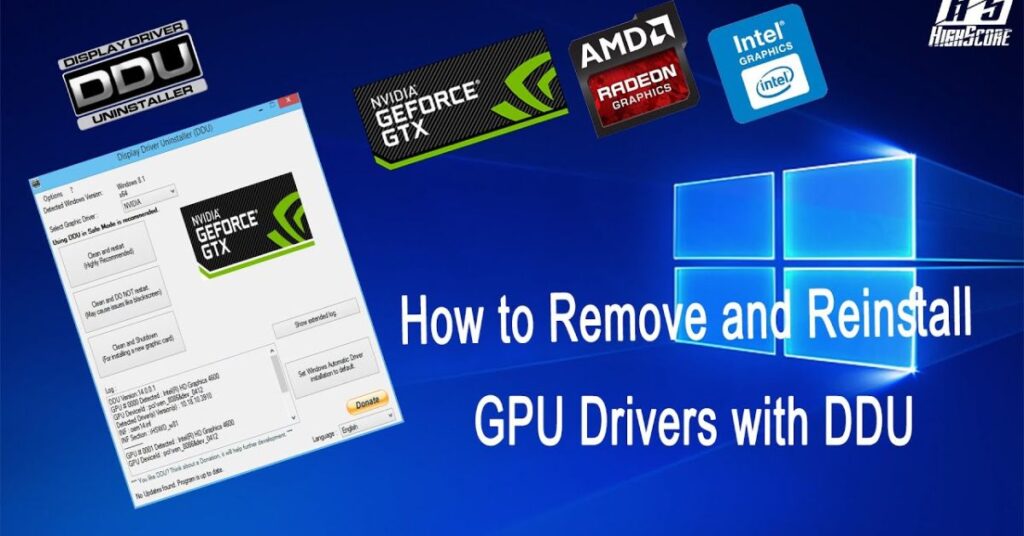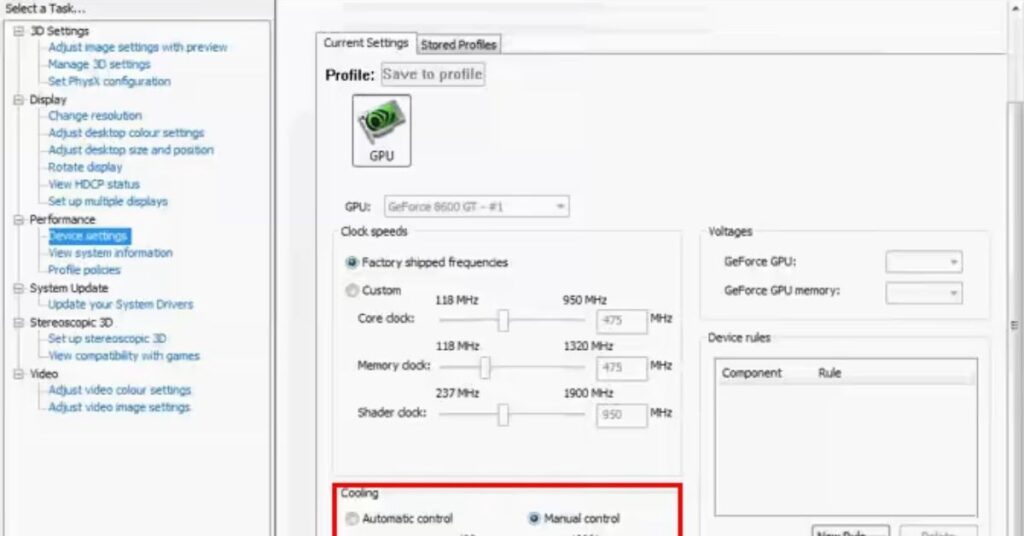To update GPU drivers, go to Device Manager, open “Display adapters,” right-click your GPU, and tap “Update driver.” Select “Search automatically.” This small step makes games faster, fixes screen issues, and helps your computer run smoothly like new.
This guide is for you. Keep reading and learn how to make your PC work better in just a few minutes.
Introduction
GPU drivers help your computer talk to the graphics card properly. They keep games smooth, fix bugs, and stop screen crashes. Think of them like a helper between your system and the GPU. If drivers are old, things slow down — so keeping them updated is super important.
Signs Your GPU Driver Needs an Update
Game or App Crashes
Are your favorite games crashing more than usual? Or apps like Photoshop randomly freezing? That might be your GPU driver crying for help.
Graphical Glitches
Weird textures, screen flickering, or broken shadows in games are classic signs of outdated or corrupt drivers.
Poor Performance
If your PC suddenly struggles with tasks it used to handle effortlessly, like video editing or gaming, it’s time to check for a GPU driver update.
Preparing to Update Your GPU Drivers
Know Your GPU Model
First things first — figure out which GPU you have. You can:
- Press Win + R, type dxdiag, and press Enter.
- Go to the “Display” tab to see GPU details.
Or:
- Open Device Manager → Display Adapters → Check the GPU name.
Backup Your System
It’s rare, but sometimes things go wrong. Create a restore point or backup important files just in case.
Uninstalling Old Drivers (Optional)
If you’re switching brands (e.g., AMD to NVIDIA), it’s wise to fully uninstall the old drivers using Display Driver Uninstaller (DDU) in Safe Mode to avoid conflicts.
Methods to Update GPU Drivers

Method 1 – Using Windows Update
Sometimes, Windows will offer GPU driver updates directly:
- Go to Settings → Windows Update
- Click Check for updates
- Install any driver updates listed
However, this method might not always give you the latest version.
Method 2 – Manufacturer Software
NVIDIA GeForce Experience
If you have an NVIDIA GPU:
- Download and install GeForce Experience
- Log in and go to the “Drivers” tab
- Click “Check for Updates”
- Install the latest Game Ready or Studio drivers
AMD Adrenalin Software
For AMD GPUs:
- Download AMD Software: Adrenalin Edition
- Open it and go to the “Updates” section
- It auto-detects your GPU and updates drivers with a single click
Intel Driver & Support Assistant
Using Intel integrated graphics?
- Download Intel Driver & Support Assistant
- It will scan your system and offer the latest drivers
Method 3 – Manual Download from Official Website
- Visit the GPU manufacturer’s official driver download page:
- NVIDIA
- AMD
- Intel
- Select your GPU model manually
- Download and install the latest driver
This is the most reliable way to get the absolute latest drivers.
Method 4 – Device Manager (Windows)
- Press Win + X and click on Device Manager
- Expand Display Adapters
- Right-click your GPU and select Update driver
- Choose “Search automatically for updated driver software.”
Again, this works but isn’t always up to date.
How to Check If the Update Was Successful
Use Device Manager
- Open Device Manager
- Right-click your GPU → Properties
- Go to the “Driver” tab to see the version number and date
Compare this with the latest driver version on the manufacturer’s website.
Use the GPU Control Panel

Both NVIDIA and AMD have software that shows the current driver version and lets you tweak performance settings.
Common Problems and Fixes
Installation Fails
Try running the installer as Administrator, or use DDU to wipe the old driver before reinstalling.
System Crashes After Update
Boot into Safe Mode and roll back the driver or use System Restore.
Rolling Back a Driver
- Go to Device Manager
- Right-click your GPU → Properties
- Under the “Driver” tab, click “Roll Back Driver.”
Best Practices for Future Driver Updates
Set Automatic Updates
Enable notifications or auto-updates in GeForce Experience or AMD Adrenalin so you never miss an important update.
Monitor GPU Manufacturer Announcements
Follow NVIDIA, AMD, or Intel on social media or their websites. They often release new drivers alongside big game launches.
FAQ’s
1. What Happens If I Don’t Update My GPU Drivers?
Old drivers can cause crashes, glitches, and slow performance. You may miss out on game optimisations and important fixes. Updating helps your GPU work properly with the latest apps and games.
2. How Often Should I Update My GPU Drivers?
You don’t need to update weekly, but check every 1–2 months or when a new game or major software is released. Manufacturer tools like GeForce Experience can notify you automatically.
3. Is It Safe to Update GPU Drivers?
Driver updates from official sources like NVIDIA, AMD, or Intel are safe. They improve stability and performance. Always avoid random third-party websites.
4. Do I Need to Uninstall the Old Driver First?
Not always. If you’re staying with the same brand (e.g., NVIDIA to NVIDIA), just install the new driver. Uninstall only when switching brands or facing issues.
5. Can Updating Fix Game Crashes?
Many times, driver updates include bug fixes for popular games. If your game keeps crashing, updating the GPU driver might fix it instantly.
Conclusion
Keeping your GPU drivers updated is an easy but powerful way to boost your PC’s speed, fix bugs, and enjoy smoother gaming or work. Don’t ignore this step. Just a few clicks can prevent crashes and improve performance. Follow the right method for your GPU brand, and keep your system running strong, stable, and ready for anything.

Pingback: What Does Undervolting A GPU Do - No More Overheating